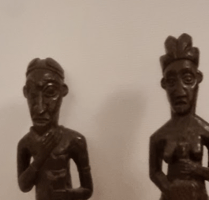More and more biographers are offering their talents, bringing to life the stories that define...
"Exploring AI Biography Platforms: A New Era of Personal Storytelling?"
As someone passionate about personal storytelling, I recently delved into the world of AI-powered biography platforms. These tools promise to help anyone write their life story, and they do so with an efficiency and simplicity that feels almost futuristic. But do they deliver on their promise, and what are their limits? Here’s what I found during my exploration.

A Seamless Start
Getting started with an AI biography platform is as simple as signing up for any other online service. Create an account, provide your details, and you’re ready to dive in. The experience is polished and user-focused, with clear interfaces and smooth navigation that show the best practices of digital product design. Everything about these platforms is optimized to guide you toward telling your story without distractions.
Once inside, the tools immediately begin asking questions to prompt your storytelling. It’s a structured process: answer one question, and follow-up questions adapt to your input, shaping the narrative as you go. Your entries are organized into sections, and everything is stored for easy access and edits. The platforms also accommodate multiple ways of giving input—text, audio, or uploading files—making it convenient for users with different preferences. The final product is impressive: clear, polished prose that reflects your words with respect, clarity, and style.
The Limits of Automation
Despite these strengths, AI biography platforms have their boundaries. For one, they assume you’re writing the story of your entire life, starting with childhood. Questions about your birthplace and early memories guide you through a relatively linear narrative, making it difficult to focus on a specific period. In our test, Nicolas wanted to write about his emigration to a new country—a distinct chapter of four years starting in his mid-twenties. The platform couldn’t adapt to this scope, as its structure seemed designed to keep users on a predefined track, asking for details about the childhood.
Another challenge lies in the way questions are posed. Prompts like “Tell me about your first house” invite long, open-ended responses, but the AI doesn’t push you to elaborate or explore further. If you’re not naturally verbose or reflective, the resulting text might feel sparse. However, one of the platform’s standout features is its ability to take rough, unstructured input—full of spelling mistakes, incomplete sentences, or missing punctuation—and transform it into well-written, coherent prose. This can save hours of effort, especially for those less confident in their writing skills.
A Solitary Experience
One aspect that stood out is how solitary the experience felt. Using these tools is deeply personal and reflective—you and the machine, working together in isolation. While this introspection can be rewarding, it lacks the relational dynamics of traditional biography projects, where the biographer or an audience provides feedback, asks follow-up questions, and encourages deeper sharing.
The platforms are priced as one-off tools for a full book project, which might seem expensive at first glance. However, considering they handle significant portions of writing and editing, they offer value by saving time and effort. That said, to truly benefit, users need to come prepared with a clear vision and purpose for their biography. Without external feedback or guidance, the experience can feel egocentric and detached.
AIs in a Human Journey of Communication
AI biography platforms are still in their infancy, but they will evolve. It’s easy to imagine them to support collaborative storytelling or facilitate exchanges between the storyteller and their audience. Perhaps one day, these platforms will integrate features that foster relationships, turning solitary reflection into shared experiences.
For now, these tools provide an accessible way to embark on a biography project, making it possible for anyone to document their story. But a biography project has more complicated stakes than simply putting facts and feelings to paper: it is about communication and relationship. "Do I want people to know that?", "Will anyone be interested in this?", "Is it true?". Our exchanges prove one thing: such a project is an intense personal journey. This is where a tool is at a strong disadvantage, if used alone. It doesn't encourage you, doesn't praise you, can't tell you that they care for you and your story. This has all to come from somewhere else and this is a fundamental element of the project.
So while we, at Sams' Echoes, believe very strongly that AIs will have a huge impact, we also think that the main actors will be the practitioners and passionate who will make these projects happen. AIs bring new possibilities that will complement the preexisting 100% fully human experience. But we intend to help these new offers to focus on its human component, which is essential here.





